Welcome to Denyse Whelan Writes Here.
A personal story written by me from memories shared with my late father and knowing some of his stories from life, and my knowledge as a teacher and someone who found modern history a great subject at school. In one way it is also a tribute to my late father because he and I loved sharing the family stories. Thanks Dad.
A.N.Z.A.C. Day.
It’s the 25th April 2025 tomorrow. And here in Australia, and in New Zealand and where there is a place to commemorate around the world, it’s A.N.Z.A.C. Day.
A is for Australia, N and Z for New Zealand and A and C for Army Corps. The date is the one on which Australians and New Zealanders entered a war to be with ‘the home country’ of the United Kingdom and one, in 1915 where there were many losses of life.
However, the day itself is now the most revered and remembered as I once wrote in an essay ‘the day Australia became a nation’
It’s a sombre day. Never about celebration and always about remembrance for me.
And here is Sydney’s Martin Place which is packed out on A.N.Z.A.C. Day.
And it brings up memories and emotions of all kinds for many.
Little bit of Australian history too…each town and city had a ‘war memorial’ of sorts added once World War 1 was over. I drive past areas here and see small ones dotted in fields with some graves nearby too. They will have floral wreaths there now in memory.
In 2015, the Centenary of A.N.Z.A.C. I got to take part in this.
This is my personal story.
Like countless people I can say, that without this event on the world stage, called World War 1, I would not be here.
Why?
My paternal grandfather was an enlisted soldier from Wollongong who finally got his mother’s permission to ‘fight’ just before he was 21. His background helped him secure a role as a kind of medic and driver of the ambulances when he arrived in France.
There were all kinds of weapons being used, including chemical in the form of mustard gas and as I understand it, he became affected by it and was repatriated to England. Specifically to Sutton Veny where buildings had been comandeered for hospital and treatment use of the army men from Australia.
My paternal grandmother lived close by in Warminster, and as a young woman, keen to do her bit, was often at the hospital for social reasons including playing the piano for sing alongs and more.
They fell in love.
The man from Wollongong who had emigrated with his family from Cowden Beath in Scotland early in the twentieth century.
The woman from a middle class background living in an English town with her widowed mother and brother.
After The War They Married In Wollongong.
I think about how brave and carefree too my grandmother was. To leave all and who you know for love. But we know that’s how it is. She came to Australia on a War Brides Boat landing at Wooloomoolo.
Sadly though it became a MUCH harder life in the next years. Family estrangements from his and more. The ‘blessing’ in disguise was the my grandmother’s mum and brother joined them in Wollongong, purchasing a house for them all the live in.
Births, Deaths and Sad Endings.
My father was second born and his elder sister and he are here with their parents. 1924 because that’s when Dad was born.
The world became engulfed by a Depression and my grandfather tried to find work where he could. The steelworks at Port Kembla offered various roles, as did some places in Sydney. The family, now numbering four, was in a precarious financial living space.
My father related this to me “my father could put his mind to work relating to vehicles and that included steam train engines used at the steelworks…but on a fateful day in 1935, “Andy Simpson” who was on work-related light duties took it upon himself to help move a shunting train and he was hurt fatally with a huge injury to his shoulder”. My Dad was 11 when his father died.
This photo of the family taken just months before the fatal accident.
About Dad.
He said he had to grow up from that day of his father’s death. He did. And he continued to be both a providing son (left school at 15 to go to a clerical traineeship at the Steelworks. His mother never got over the grief of her Andy’s death and it was worsened by more family estrangement…living in the same town (Wollongong was still a town) where family members crossed the street to avoid conversations.
Dad would say he felt he did not contribute to helping Australia in World War 11 but he did because he became a volunteer around the town and helped others via the scouting movement. As he worked in a ‘protected industry’ he could not enlist.
Many years ago Dad and I visited the Australian War Memorial where he got to look at his father’s service record and more. And we kept copies in family files for me and my brother.
In his latter years Dad enjoyed catching up with me when we shared more about family history and Dad took a liking to this poem and the poppy I painted.
This day, I am honouring my heritage from Dad’s side and I am pretty sure he would be fine with the sharing of the story via my memories.
Thank you Dad, for your stories and how we live in with memories and history embedded in us.
May A.N.Z.A.C. Day 2025 be one of reflection for us all.
Denyse.
Delighted to be linking up again for WWWhimsy with Min and friends.






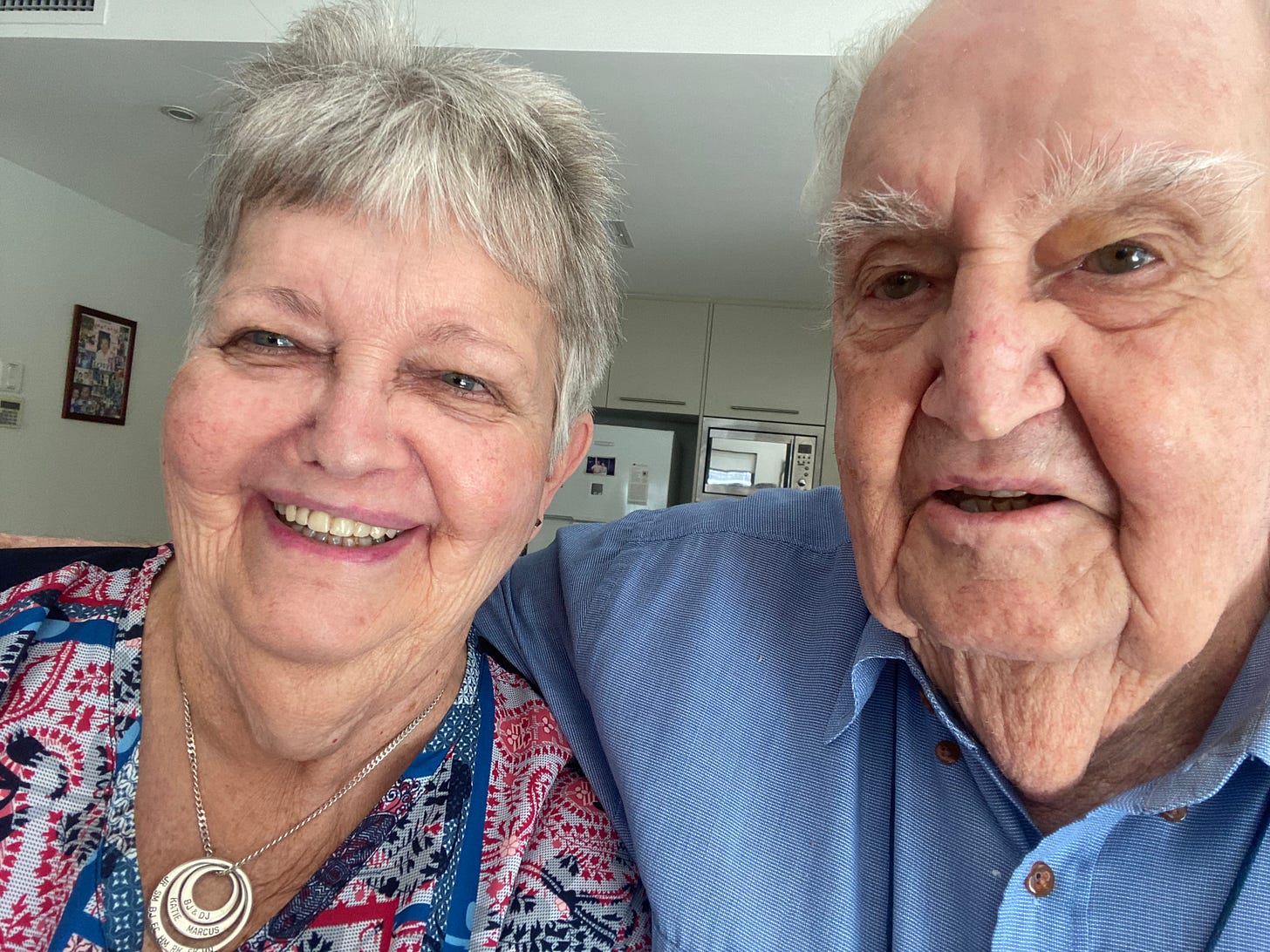
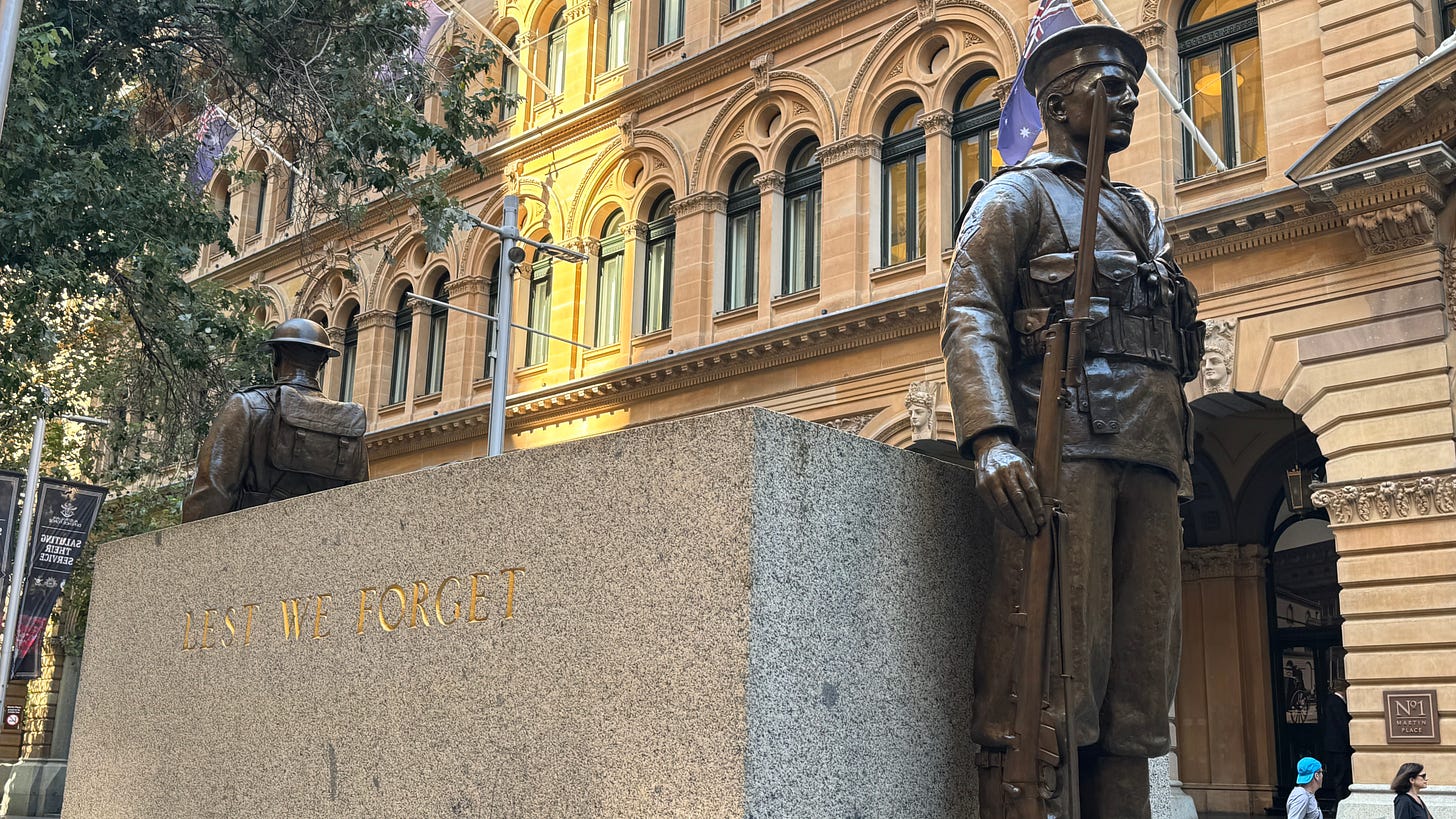


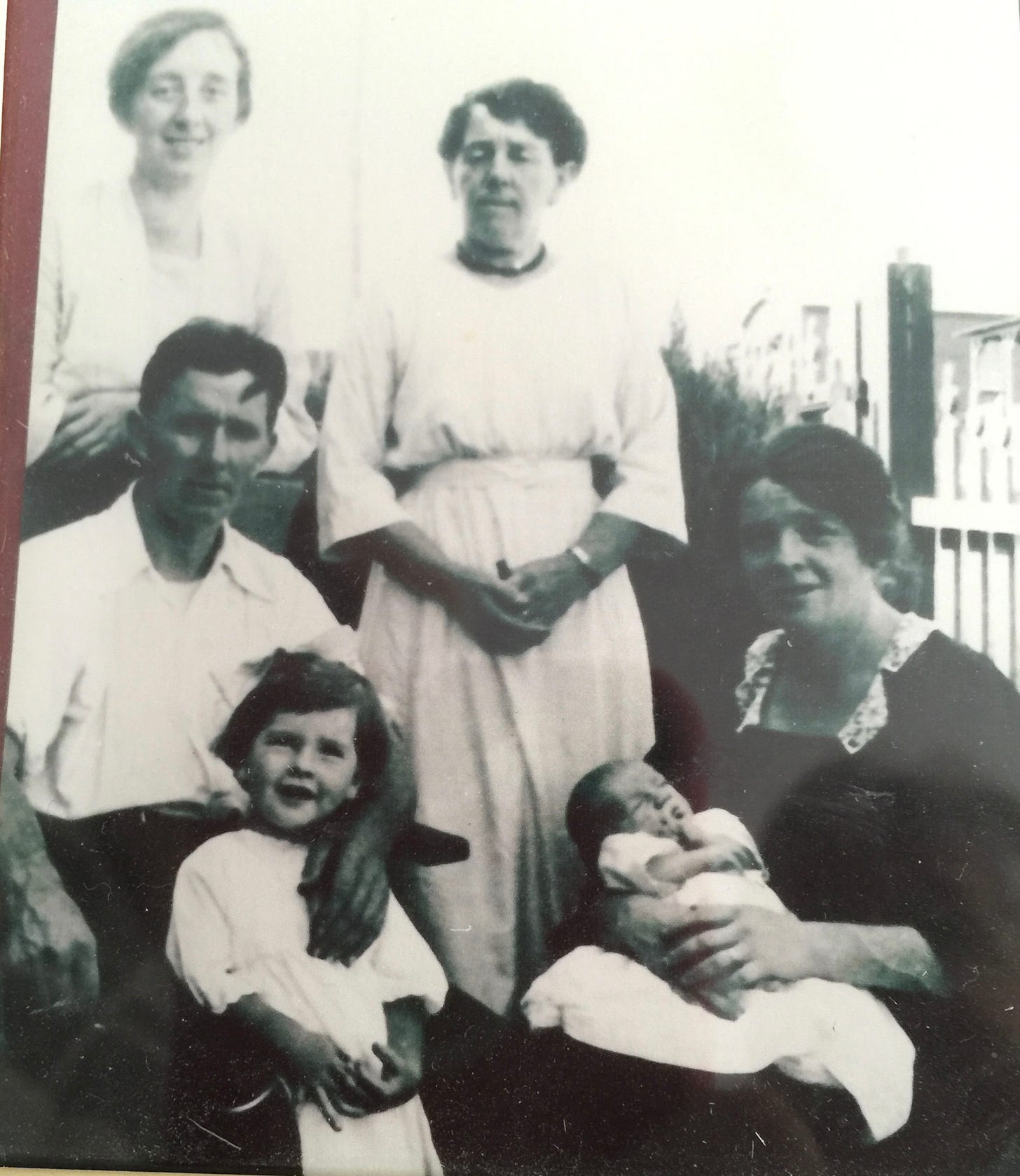

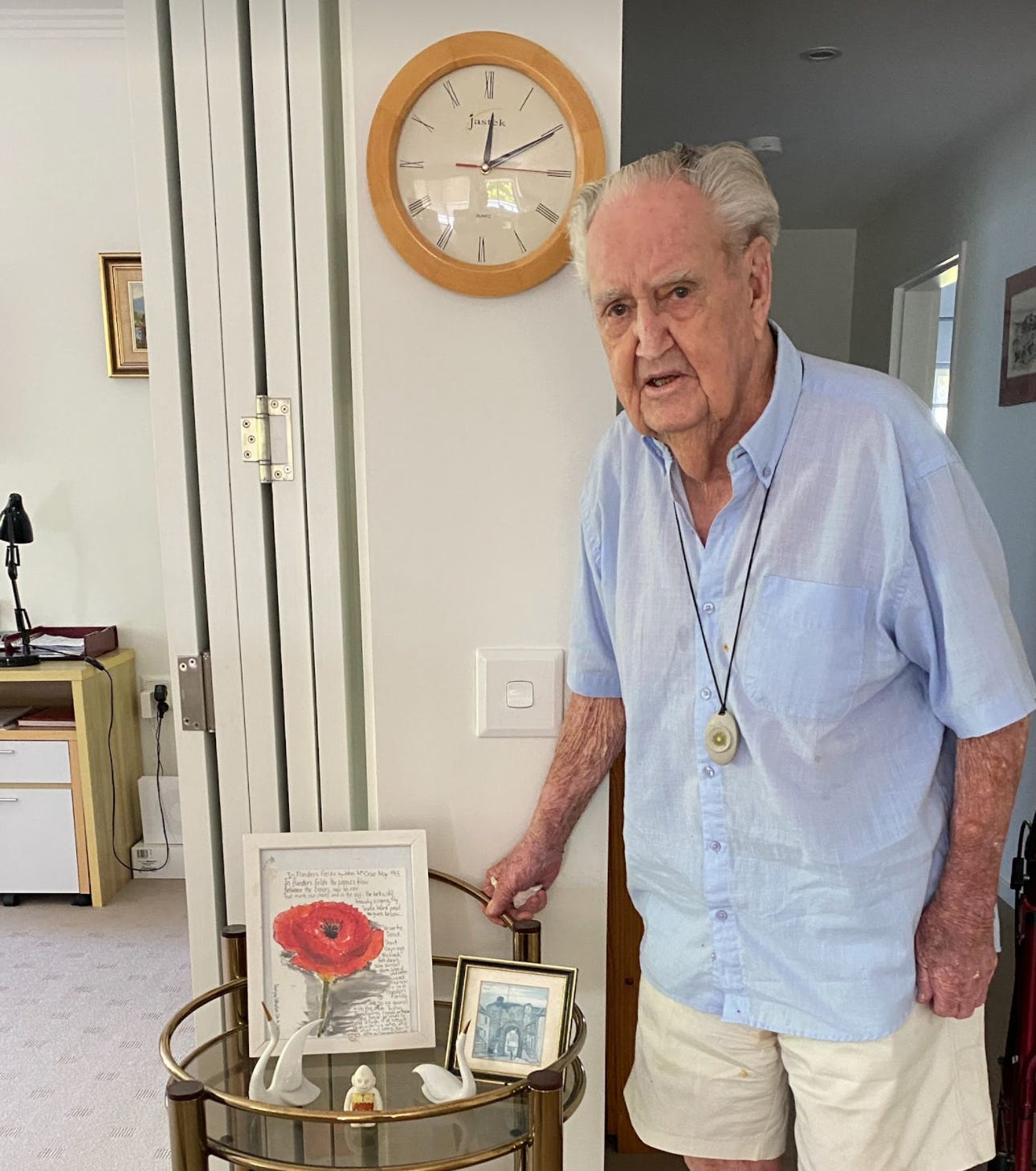
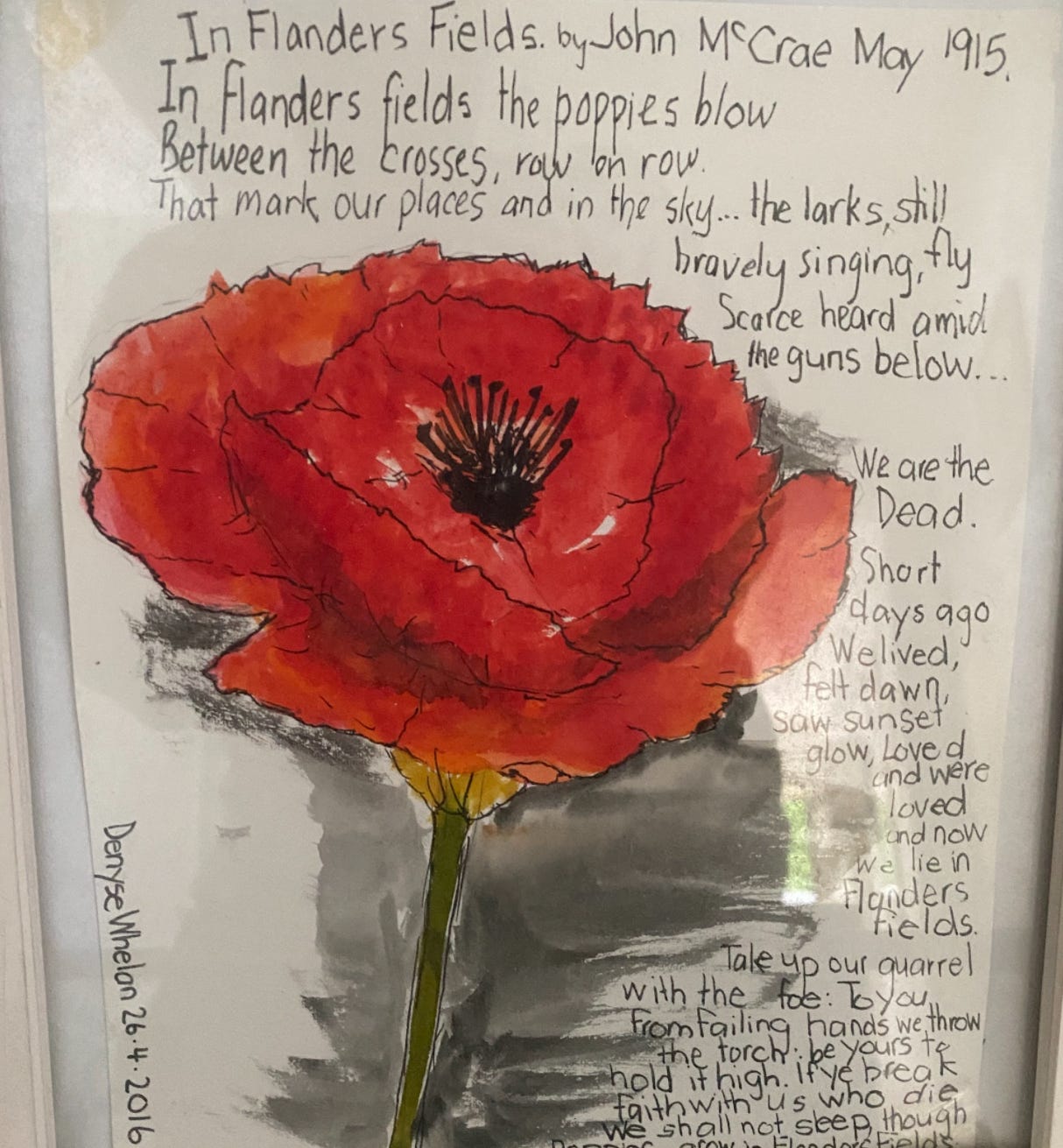

What a very interesting story Denyse. I love hearing about the Anzacs, and feel quite emotional when I see the old Diggers marching on Anzac Day. It seems almost a sacred day, to me.
This is wonderful Denyse. I loved hearing about your family's ANZAC memories. My Dad also didn't think he contributed to the war effort. He arrived in Japan just as the war was over, so didn't see any battles. His batallion stayed for peacekeeping. When he came home he refused to get his medals as the didn't feel that he'd earned them. About 20 years ago I applied for them on his behalf. He still didn't want them, so I have them now. The tragic accident in your family was very sad.